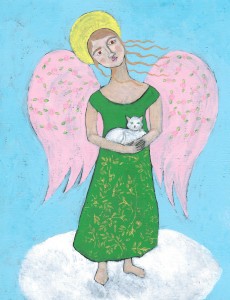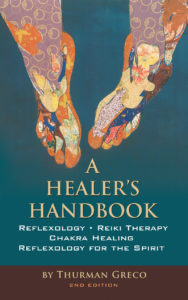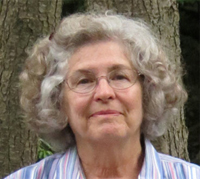Your Sleep as a Spiritual and Healing Event
For all that’s written and spoken about sleep, we all know on some level that sleep is a complex, spiritual event necessary to maintain our health and keep the body and soul together.
I was recently quite ill with a “sinus infection of global proportions” as described to me by a healing friend. My first tip off was when I decided on a Wednesday afternoon that I suddenly needed to rest. Fortunately, I followed my body’s demands and crawled in bed. I promptly went to sleep and woke up on Sunday morning.
On Sunday morning, I was quite tired but felt better. I drank a lot of water, ate fresh fruit, and made it to the doctor’s office on Monday to find out what my problem was. Within a couple of hours, I had had enough blood tests, x-rays, and other scans to learn that I not only had the enormous sinus infection but I also had pneumonia.
I also had a physician who was angry at me, a daughter nurse who was angry at me, and several other medical professionals who were angry.
I doubt if I’ll have this experience repeat itself again. And, I’m certain that this sleep, while highly therapeutic, may have needed some breaks for hydration, etc.
Nevertheless, I’m also convinced that, on some level, the sleep helped my situation.
I was fortunate because I fell asleep without trouble. Sleep is not always available to people who are ill or suffering with troubled health for whatever reason.
And, sometimes people are ill and need nothing more than a good night’s sleep to make things better. So, encouraging a good night’s sleep on a regular basis is a good thing. Sleep, experienced regularly, is important for wellness and good health in general.
What provision do you make for a regular sleep schedule which includes enough sleep every night? Are you able to include enough hours to offer therapy to your self and lifestyle?
Is your pillow adequate for the job?
Truthfully, I’ve blogged many times and will blog many times more about all the things a person can do to get enough sleep. Keep after your sleep until you are able to support your physical, mental, and spiritual health.
The first step involves honoring your self and your need to sleep well in order to live well.
Thanks for reading this blog post. Please refer it to your favorite social media network.
Thurman Greco
Artwork provided by Jennette Nearhood
Reflexology Blog – 2 Principles for Healing
Principle 1
Commit to making your health a priority. This means believing you are a valuable being who deserves brilliant health and well-being.” – Inna Segal
When your health is a priority, it becomes a part of your everyday life. You become conscious of how healthy your physical, mental, emotional, and spiritual bodies are on a daily basis. When you realize that something is not right, you work to bring about homeostasis…not just ignore the condition.
When good health is a priority, you listen to the messages your body sends.
And, of course, to do this, you need a “plan, Stan.” The reason for this is simple: with a plan, a goal for your overall health improvement, your chances for success are better than they are without a plan.
When you focus on your overall health, the different pieces begin to fit together. They make more sense. The food you eat goes with the exercise you get goes with the information your body gives to you daily goes with the supplements you take goes with the importance of homeostasis.
Principle 2
“It wasn’t about getting a certain body size. It was about my health.” – Judy Molnar
Healing, a healthier lifestyle, is not about the perfect body. Seeking perfection is a setup for failure. The goal here is a healthy body, mind, emotion, spirit, that works.
If that gorgeous body appears and you end up with your photo on a magazine cover,
so much the better. But that’s not the goal.
Begin moving your body. Movement counteracts feelings of stagnation, depression, overweight.
There are many ways to move: walking, yoga, swimming, dancing, tai chi. Begin with something you are comfortable with. Walking is cheap, easy, and requires only shoes. Yoga is a good choice also. In yoga, you are working with yourself as you develop skills. There is no failure factor in either walking or yoga. Whatever you do, try to practice it regularly.
The Fountain of Youth does exist. A branch of it is probably in your neighbor at a nearby fitness center. Join. Visit it three times a week. Get to know the other people there. Enjoy yourself. This is the playground you fondly remember from elementary school.
Regular movement increases your energy, detoxes your body, sharpens your thinking, and helps you feel better about yourself.
Reflexologists, you will do much good for your self and your client partners if you will share these two principles with them.
Please share this article with your preferred social media network.
Thurman Greco
“A Healer’s Handbook” is now available! You can purchase it at Amazon and through my website http://www.thurmangreco.com.
Enjoy!
One Thing Everyone Needs
 WHEN YOU COMMIT TO making health a priority, it becomes a part of your everyday life. This commitment is one thing everyone needs. You become conscious of how your physical, mental, emotional, and spiritual systems work together and how they change daily. You listen to the messages your body sends.
WHEN YOU COMMIT TO making health a priority, it becomes a part of your everyday life. This commitment is one thing everyone needs. You become conscious of how your physical, mental, emotional, and spiritual systems work together and how they change daily. You listen to the messages your body sends.
WHEN YOU REALIZE THAT something is not right, you work to bring about balance. Homeostasis offers an opportunity to honor the body as a complex system. Homeostasis occurs when this system is in balance. This is the one thing everyone needs.
WHEN YOU FOCUS ON your overall health as the pieces fit together and make sense.
The food you eat goes
with the sleep you get goes
with the exercise you get goes
with the information you receive from your body goes
with the supplements you take goes
with the importance of homeostasis.
The balance we all seek is what I define as health. This can be a challenge. One thing is sure:
for my money we can’t have good health without homeostasis.
Health is different for everyone. As we go through life, we have to figure out what works for each of us. In the 21st century, there is no one “right” answer to a health question. There are, instead, several good answers for each question. We empower ourselves to make the right personal decision based on:
our own health goals,
personal health circumstances,
the advice of professional healthcare professionals.
The important thing is to take control of the body and the future of our health.
Taking control means being well informed about our options. We have to know the difference between what options are “good” and what options are “not so good”. The power to choose a path based on practical information is strong. The informed choices we make guide us down the path to health.
Curing disease starts with preventing it.
Empowerment brings responsibility. We won’t know which options are right for us until we know ourselves and our bodies intimately. Good decision making involves knowing:
our physiology,
genetics,
unique health conditions,
and what we consider to be important.
The next series of articles will explore the answer to the question “What is Health?”
Some of the information shared in these posts will work for you and your client partners. Some of it will not. After all, everyone:
is different.
has choices to make.
Hopefully you’ll find things that will work for both you and your client-partners. At the end of this section of the book, both you and your client partners should be empowered by the information shared. This is the one thing everyone needs.
Thank you for joining me in this journey as we explore homeostasis and health.
Please refer this article to your preferred social media network.
I hope you found this helpful. Please leave your comments below and check out the other posts.
Don’t forget to join the email list.
Peace and food for all.
Thurman Greco
Artwork provided by Jennette Nearhood
What Separates Reflexologists From Other Licensed Healthcare Professionals?
 Well, for one thing, it’s our vocabulary.
Well, for one thing, it’s our vocabulary.
Every healthcare professional has his/her own vocabulary which is unique to what s/he practices. Reflexologists have their own vocabulary.
Homeostasis is an important word in reflexology. This is the balancing of all the body systems which a session encourages.
Reflexology practitioners include body systems in the professional vocabulary: muscular system, skeletal system, respiratory system, circulatory system, urinary system, nervous system, endocrine system, digestive system, spiritual/emotional system, physical system, mental system, sense organs,
There are also several words NOT in our vocabulary. Reflexology practitioners do not treat, cure, recommend, advise, examine, prescribe, dispense, diagnose, or administer. Those ten words are not appropriate for our career field. I tell students that those ten words are “copyrighted” for allopathic practitioners.
The seven levels of illness are definitely in our vocabulary. These are the seven diseases which build upon one another as a body progresses from well to diseased. These diseases begin with fatigue, and progress to fever, irritation, inflammation, enduration, ulceration, and finally cancer.
Disease is caused, in the final analysis by nutritional deficiencies, sedentary lifestyle, poor sleep habits, improperly used prescription, over-the-counter, and recreational drugs, digestive difficulties, inflammation, toxicity, depression. endocrine system imbalances, DNA.
These words, terms as it were, set reflexologists apart from other healthcare professionals. If you ask chiropractors, massage therapists, dentists, acupuncturists what the main causes of disease are, you may hear some of the same words but I doubt if you’ll hear them all. Instead, you will hear terms that are reflective of the career field of the professional you are asking.
The same holds true for the other words in our vocabulary. Many professionals may not even be aware of the theory about levels of disease. Certainly, this concept is not widespread in allopathic medicine.
And, body systems vary from textbook to textbook. It doesn’t matter really whether or not we combine the muscular and skeletal systems or include the reproductive organs with the endocrine system.
It’s simply that these words, terms, concepts define the lens through which we view our client-partners and their physical, mental, spiritual, and emotional issues which they bring to our tables.
Peace and food for all.
Thank you for reading this blog/book.
Please share this article with your preferred social media.
Please send a comment.
Thurman Greco









